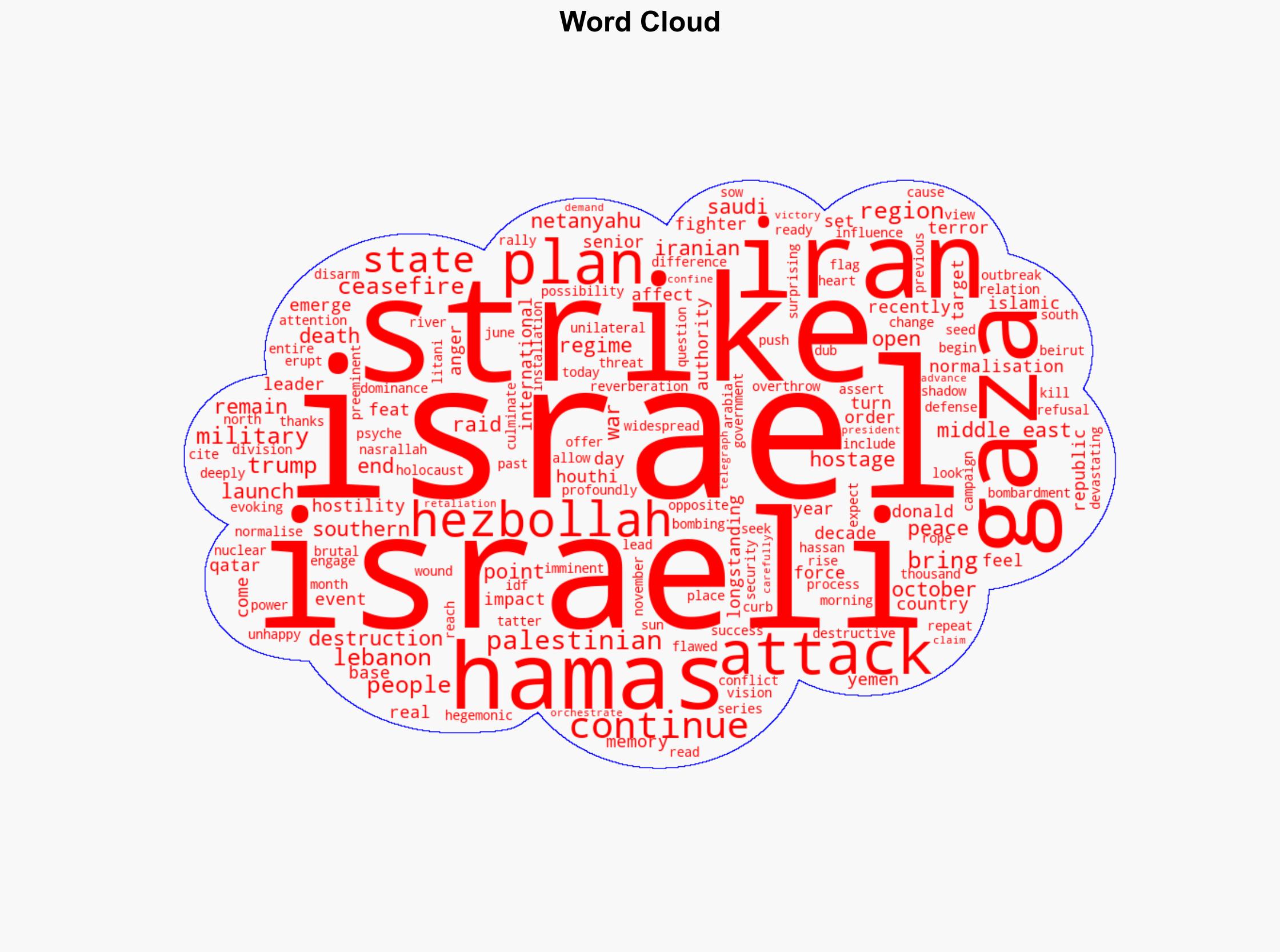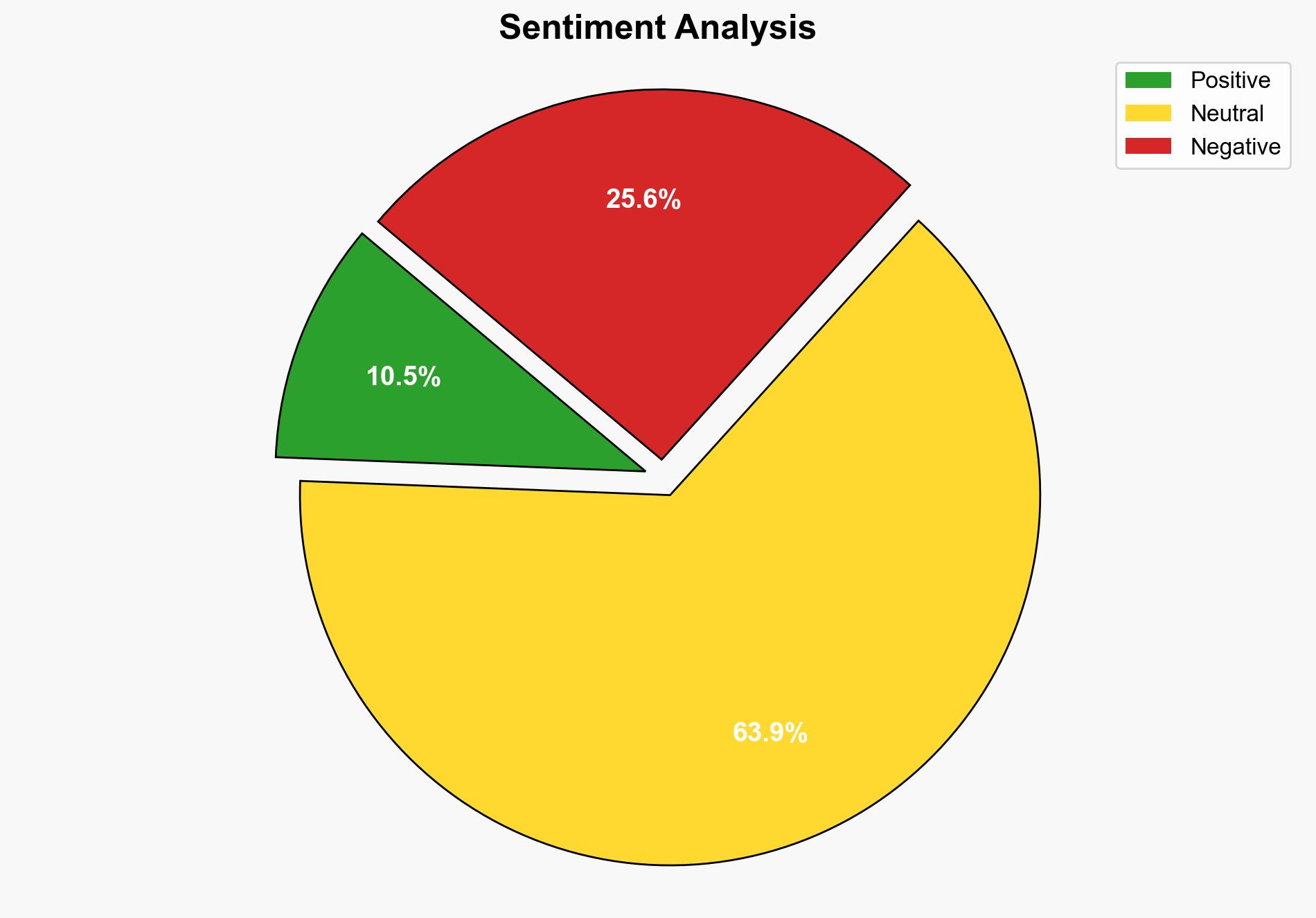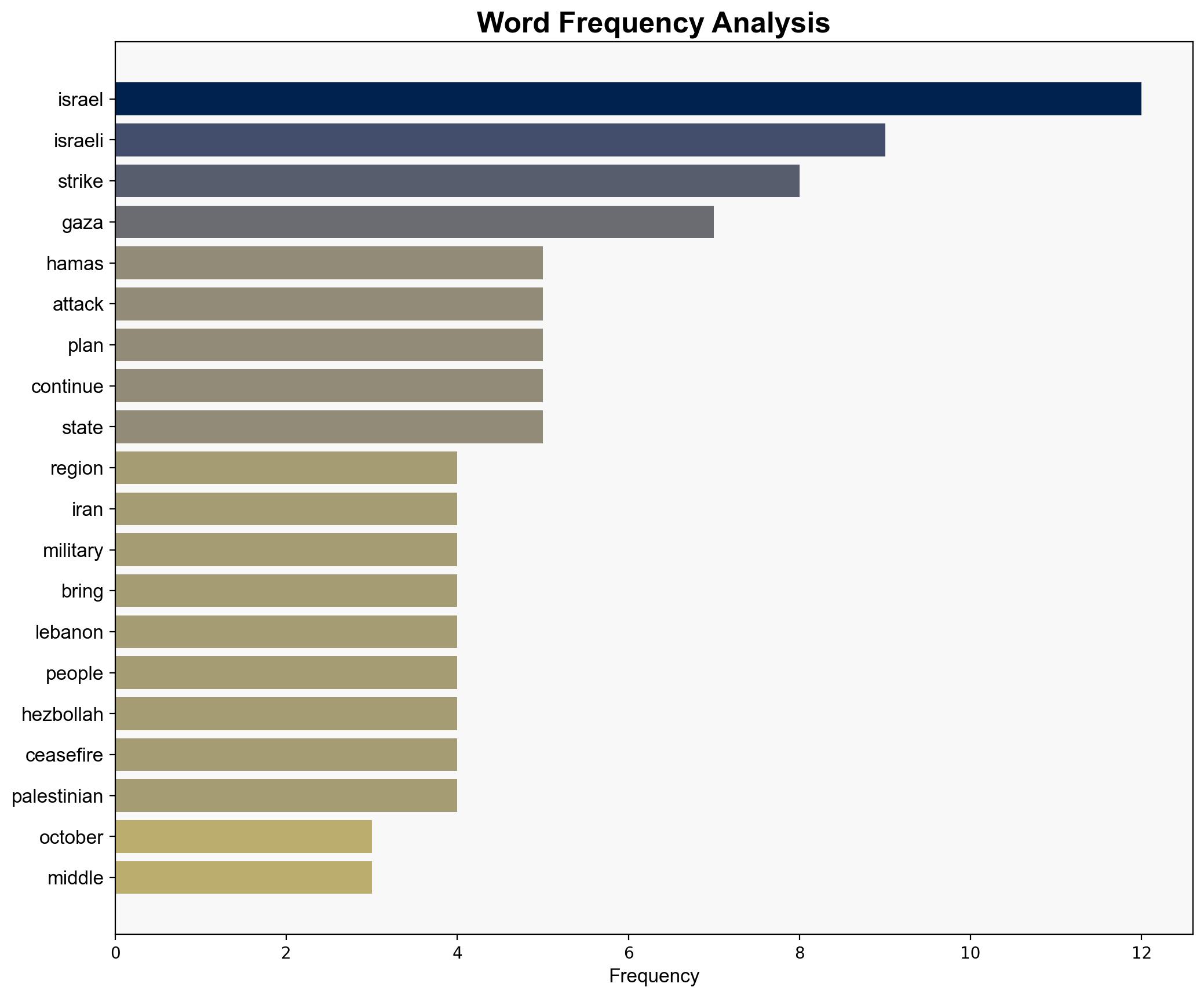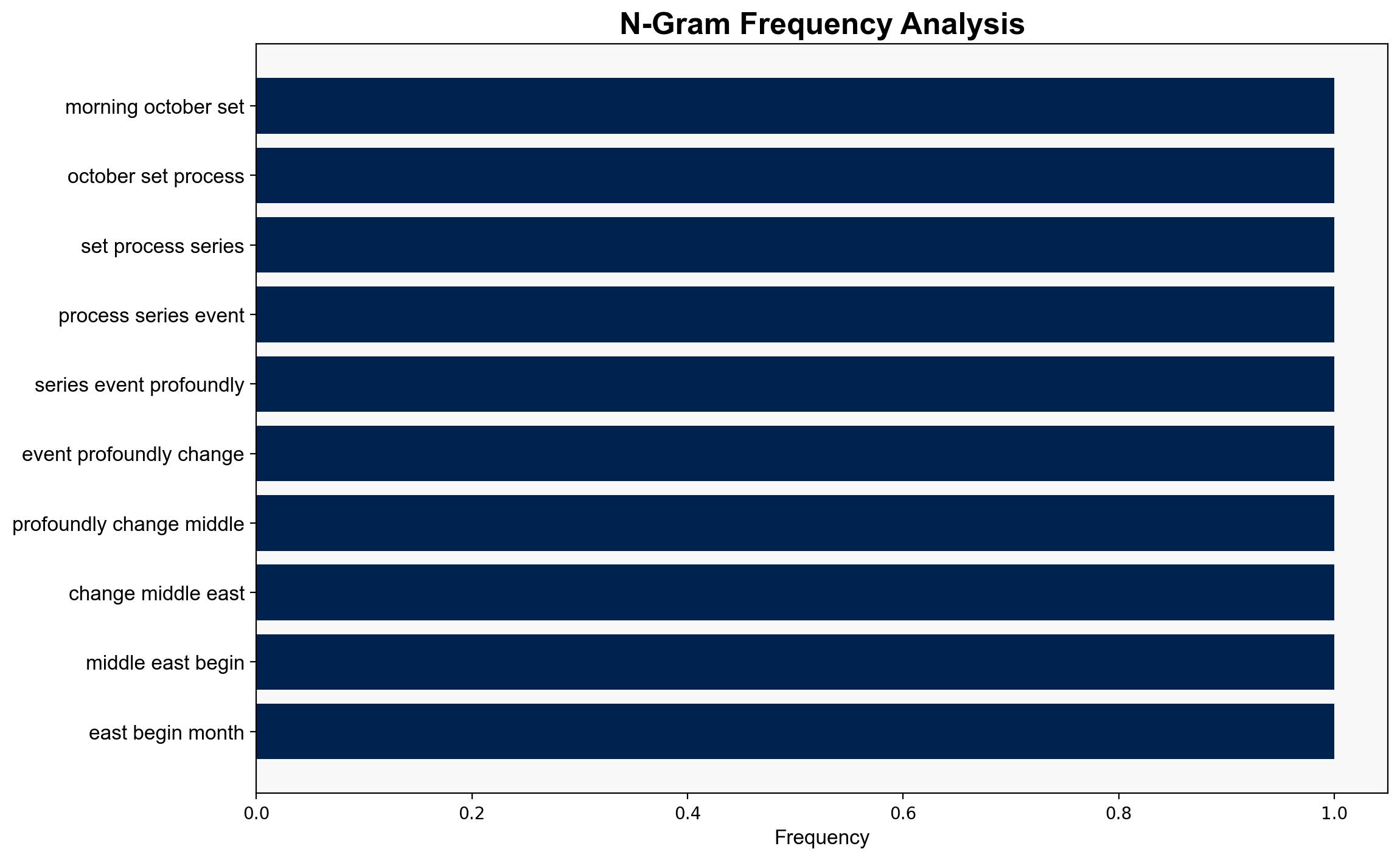The two years of fighting since October 7 have transformed the Middle East – The Conversation Africa
Published on: 2025-10-06
Intelligence Report: The two years of fighting since October 7 have transformed the Middle East – The Conversation Africa
1. BLUF (Bottom Line Up Front)
The Middle East has undergone significant geopolitical shifts following two years of conflict. The most supported hypothesis suggests that ongoing hostilities and strategic realignments have weakened regional stability, with a medium confidence level. Recommended action includes diplomatic engagement to stabilize the region and prevent further escalation.
2. Competing Hypotheses
1. **Hypothesis A**: The conflict has led to a destabilized Middle East, with increased hostilities and fragmented alliances. This is supported by ongoing military engagements, such as Israeli strikes in Lebanon and Syria, and the failure of peace initiatives like Trump’s plan.
2. **Hypothesis B**: The conflict has catalyzed a realignment of power, potentially leading to a more stable regional order. This is evidenced by Saudi Arabia’s normalization efforts with Israel and potential diplomatic breakthroughs involving Gulf states.
Using ACH 2.0, Hypothesis A is better supported due to the persistent military actions and lack of effective peace-building measures.
3. Key Assumptions and Red Flags
– **Assumptions**: Hypothesis A assumes that military actions will continue to undermine diplomatic efforts. Hypothesis B assumes that normalization efforts will outweigh ongoing conflicts.
– **Red Flags**: The potential bias in overestimating the impact of normalization without considering underlying tensions. Missing data on internal political dynamics within key states like Iran and Saudi Arabia.
4. Implications and Strategic Risks
– **Patterns**: Continued military engagements suggest a cycle of retaliation and escalation, risking broader regional conflict.
– **Cascading Threats**: Economic instability due to disrupted oil supplies, increased cyber warfare, and potential for proxy conflicts.
– **Geopolitical Risks**: Shifting alliances could lead to unexpected power vacuums or confrontations.
5. Recommendations and Outlook
- Engage in multilateral diplomacy to reinforce ceasefires and support peace initiatives.
- Monitor and address economic impacts, particularly in energy markets.
- Scenario Projections:
- **Best Case**: Successful diplomatic interventions lead to a stable regional order.
- **Worst Case**: Escalation into a broader regional war involving major powers.
- **Most Likely**: Continued low-intensity conflicts with intermittent diplomatic efforts.
6. Key Individuals and Entities
– Hassan Nasrallah
– Benjamin Netanyahu
– Mohammad bin Salman
– Donald Trump
7. Thematic Tags
national security threats, cybersecurity, counter-terrorism, regional focus




